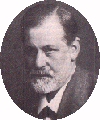



(Return to Classics index)
Classics in the History of Psychology is an effort to make the full texts of a large number of historically significant public domain documents from the scholarly literature of psychology and allied disciplines available on the World Wide Web. There are now over 25 books and about 200 articles and chapters on-line. The site also contains links to over 200 relevant works posted at other sites.
The target audience is researchers, teachers, and students of the history of psychology, both for use in their courses on the history of psychology, and for the purposes of primary academic research. To assist undergraduate teaching, in particular, original introductory articles and commentaries, written by some of the leading historians of psychology in North America, have been attached to a number of the most important works.
The initial set of documents was chosen by the Editor of the project, Christopher D. Green of York University, in consultation with a number of other professional historians of psychology. Many of the subsequent documents were selected in response to the requests of the site's users. See a more detailed history of the site below.
CHP would like to acknowledge the computer support of the Department of Psychology at York University, of the College of Education at Arizona State University, and the assistance of Dr. John Horan, who coordinated arrangements at ASU.

Daniel Denis
Mr. Denis is a Ph.D. student in the History & Theory of
Psychology Graduate Programme in the Department of Psychology at
York University. His academic supervisor is Christopher Green.
He obtained his BA from Laurentian University (Ontario) in 1997,
and his MA from York in 1999. He specializes in the history and theory of statistical practices in psychology. He worked with CHP from 1997 to 2002.
Mirisse Foroughé
Ms. Foroughé is a Ph.D. student in the History & Theory of
Psychology Graduate Programme in the Department of Psychology at
York University. Her academic supervisor is Christopher Green.
She obtained his BA from York University in 1998, and her MA, also from York, in 2001. Her research interests include phenomenological psychology. She worked with CHP in 2000 and 2001.
Matthew Barnes
Mr. Barnes is an MA student in the History & Theory of
Psychology Graduate Programme in the Department of Psychology at
York University. His academic supervisor is Christopher Green.
He obtained his BA from Mississippi State University in 1999. He is working on the historiography of psychology.
He worked with CHP in 1999 and 2000.
Dan Aalbers
We also gratefully acknowledge the participation of:
Raymond E. Fancher York University
And the editorial advice of:
David Barone, Nova Southeastern University
By the Spring of 1998 the site's pages were nearing 10,000 hits per month. It was about this time that work began on the site's first "centerpiece" project -- a full electronic edition of William James' Principles of Psychology. The first volume was scanned, converted, and edited almost entirely by Dan Denis, the earliest of the Classics Editorial Assistants. The second volume was undertaken primarily by Dan Aalbers. The full work finally appeared the summer of 1999. The site was featured in Psychwatch as a "Top Ten" site in June 1998, in Scientific American/Nature "Science & Engineering Network News" in October 1998, and as New Scientist "Site of the Day" in January 1999. It was also named a "Cool Site" by Yahoo!.
By then the site contained some 60 documents in total, and its page hit rate had risen to over 30,000 per month. In September 1999 John Horgan of Arizona State University offered space for a "Classics" mirror site. The mirror went into operation in early November. Also in November 1999 the site's Editorial Board was first convened to assist with the selection and organization of new materials. Up to this time the documents had been selected by the Editor, or had been produced in response to specific requests by the site's users.
By January 2000, Classics was closing in on 100 documents, and it received, on average, about one page hit per minute. It was recognized by the editors of Britannica.com as "as one of the best on the Internet when reviewed for quality, accuracy of content, presentation and usability." Work had also begun on its second "centerpiece" project -- James Mark Baldwin's Dictionary of Philosophy and Psychology, of which the letter "A" was posted in early February 2000. Also in February, work began on the collection of key APA Presidential Address.
During the summer of 2000 work began on the first of the Classics Special Collections, "Institutions of Early Psychology." The site also drew more than one million page hits during 2000. The second Special Collection, "Psychology and Women" was begun in 2001. By the end of 2001, Baldwin's Dictionary had been completed up to the letter "N", and the site had accumulated over 200 primary source documents. It also drew over one million page hits in 2001 for the second consecutive year.
Mr. Aalbers is a Ph.D. student in the History & Theory of
Psychology Graduate Programme in the Department of Psychology at
York University. His academic supervisor is Thomas Teo.
He obtained his BA from University of Nevada, Reno and
his MA from Long Island University (NY). He was also the co-editor of the e-journal,
Henry L. Minton, University of Windsor
Robert H. Wozniak, Bryn Mawr University
Peter J. Behrens, Pennsylvania State University
Michael Cowles, York University
Donald A. Dewsbury, University of Florida
Nancy Innes, University of Western Ontario
Alvin Smith, St. Andrews Presbyterian College
Michael M. Sokal, Worcester Polytechnic Institute
History of the Classics in the History of Psychology Project
Last revised 17 Febraury 2004.